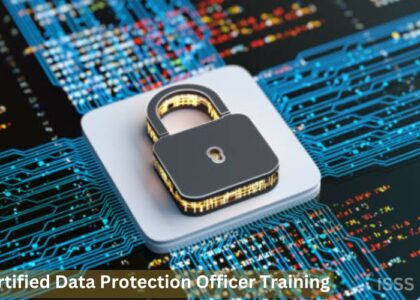With data privacy regulations like the General Data Protection Regulation (GDPR) reshaping the way organizations handle personal information, the role of a Data Protection Officer (DPO) has become essential. Certified DPOs play a crucial role in ensuring compliance, protecting sensitive data, and mitigating privacy risks. But how can you become a Certified Data Protection Officer? This guide outlines the steps to achieve this valuable certification.
1. Understand the Role of a Data Protection Officer
A DPO oversees data protection strategies, ensures compliance with data privacy laws, and acts as the point of contact between the organization and regulatory authorities. Key responsibilities include:
- Monitoring internal compliance
- Conducting data protection impact assessments (DPIAs)
- Advising on data protection obligations
- Handling data breach notifications and responses
2. Meet the Basic Requirements
To pursue DPO certification, you typically need:
- Knowledge of Data Protection Laws – A solid understanding of GDPR, CCPA, and other relevant regulations.
- Experience in Data Privacy or Security – Background in IT, legal, risk management, or compliance is beneficial.
- Analytical and Communication Skills – The ability to interpret regulations and communicate effectively across departments.
3. Choose the Right Certification Program
Several reputable organizations offer DPO certification programs. Look for programs that cover:
- GDPR and global data privacy laws
- Data governance and risk management
- Privacy impact assessments and audits
- DPO responsibilities and best practices
Popular certification Bodies:
- BCAA UK – British Certification And Assessments UK: Brit Certifications and Assessments (UK) (BCAA) provides extensive training and certification services. They offer trainings suiting all categories of professionals.
4. Complete Training and Pass Exams
Enroll in a DPO training course, which typically lasts several days and includes both theoretical and practical components. Following training, you must pass an exam to receive certification.
5. Gain Practical Experience
Hands-on experience in data protection is crucial. Participate in:
- Data privacy audits
- Policy development
- Risk assessments and compliance projects
Real-world experience strengthens your expertise and enhances your ability to manage data protection effectively.
6. Stay Updated on Data Protection Laws
Data privacy regulations are constantly evolving. To maintain certification and stay relevant, engage in continuous learning through:
- Webinars and conferences
- Privacy forums and professional networks
- Updates from regulatory bodies
7. Apply for DPO Roles
Once certified, you can apply for DPO positions in various sectors, including healthcare, finance, and government. Your certification signals to employers that you are equipped to manage data privacy and compliance.
Conclusion
Becoming a Certified Data Protection Officer is a strategic career move in today’s data-driven world. By following these steps, you can build the knowledge and skills necessary to safeguard sensitive information, ensure regulatory compliance, and advance your career in data protection.





